Each year educators at SOEL engage in research with their children to dig deep into an idea or concept. This idea or concept is encompassed in a BIG idea. This BIG idea frames our Long Term Investigation.
For 2022 our 4-Year-Old Kindy research question was:
Social change occurs when children and educators become advocates for fairness, social justice, and inclusion.
Clara, Rowan and Henry were designing the frame for the puppet theatre. The following conversation highlights their thinking about fairness and inclusion.
“I think there should only be two people doing the puppets at a time.”
“Yeah, because there’s not much room.”
“But if it’s this way (indicating the frame in a landscape layout), I think there’ll be just enough room for three people. That’s even fairer.”
– Clara, Rowan & Henry
Antibias Goals
Identity
Goal 1
Each child and educator will demonstrate self-awareness, confidence, family pride, and positive social identities.
Diversity
Goal 2
Each child will express comfort and joy with human diversity, accurate language for human differences, and deep caring human connections.
Justice
Goal 3
Every child and educator will increasingly recognise unfairness, have language to describe unfairness and understand that unfairness hurts.
Action
Goal 4
Each child will demonstrate empowerment and the skills to act, with others or alone, against prejudice, and/or discriminatory actions.
We anticipated that introducing this BIG idea and the anti-bias goals could bring about uncertainty in our educators and families. It is hard to face change. We all know this feeling. We feel great when we learn to do something a particular way, to do something successfully. We attach this “right” action to our beliefs about ourselves as good people. So, when something changes, or we are asked to do something differently, we fear the change: not so much the change itself, but rather what this change says about our image of ourselves. So, we resist. We close ourselves off. We refuse to be open to the possibilities before us. The Anti-Bias approach was one such change.
This uncertainty and resistance informed our decision-making around training and support. We facilitated two webinars on Indigenous perspectives, two webinars on anti-bias goals, a workshop on inclusion, training nights on anti-bias goals and inclusion, blog posts, research video, network meetings, kindy meetings, and studio meetings to embark on a journey of self-discovery as educators, citizens and as an organisation. This was a courageous journey.
What is wonderful about the human condition is that people do dig deep after their initial fear wears off.
They find their core, and they lean into learning something new. This is exactly what the educators in our 4-year-old programmes did. They questioned their values and beliefs, asking questions at Team Meetings like:
- “What does NAAIDOC week really mean?”
- “How can we truly acknowledge our First Nation’s people?”
- “What does it mean to be kind to someone when they continue to frustrate you?”
- “How aware am I of my own identities, history, social and cultural locations and experiences?
- What are my own experiences and attitudes towards diversity and difference?
- What privileges do I experience based on the way society is structured?
- What biases do I experience based on the way society is structured?”
Educators were courageous in the face of the unknown: this is the way they built their resilience one step at a time. They leaned into courage and demonstrated their ability to be braver leaders throughout this research. This was not surprising as educators demonstrate their commitment to co-constructing knowledge with the children each year.
How did we engage in this research with the children?
The educators engaged in experiences that explored the concepts of fairness, kindness, inclusion and social change. Each 4-year-old programme identified a focus based on the children’s interests, their conversations, and their self-directed play. From here, educators plan intentions for the children’s learning. These included:
Concepts
- What is fairness?
- What does fairness mean?
- What is kindness?
- What is inclusion?
Functions
How does inclusion function?
Connections
What systems or processes might we observe or create that are connected to other things?
Perspective
What might be some different points of view?
How can we look at this in different ways?
Dispositions
- Mindfulness
- Creativity
- Appreciation
- Balanced
- Playfulness
- Curiosity
- Cooperation
- Leadership
- Confidence
Communication and Thinking Skills
- Language
- Remembering
- Problem-Solving
- Concluding
- Dancing
- Speaking
Personal and Social Skills
- Self-Awareness
- Considering Others
- Initiating
Research Skills
- Questioning
- Creating
- Reflecting
- Comprehending
Actions
- Advocacy
- Sharing Information
- Reflection
- Participation
Educators planned intentional pedagogy, which included:
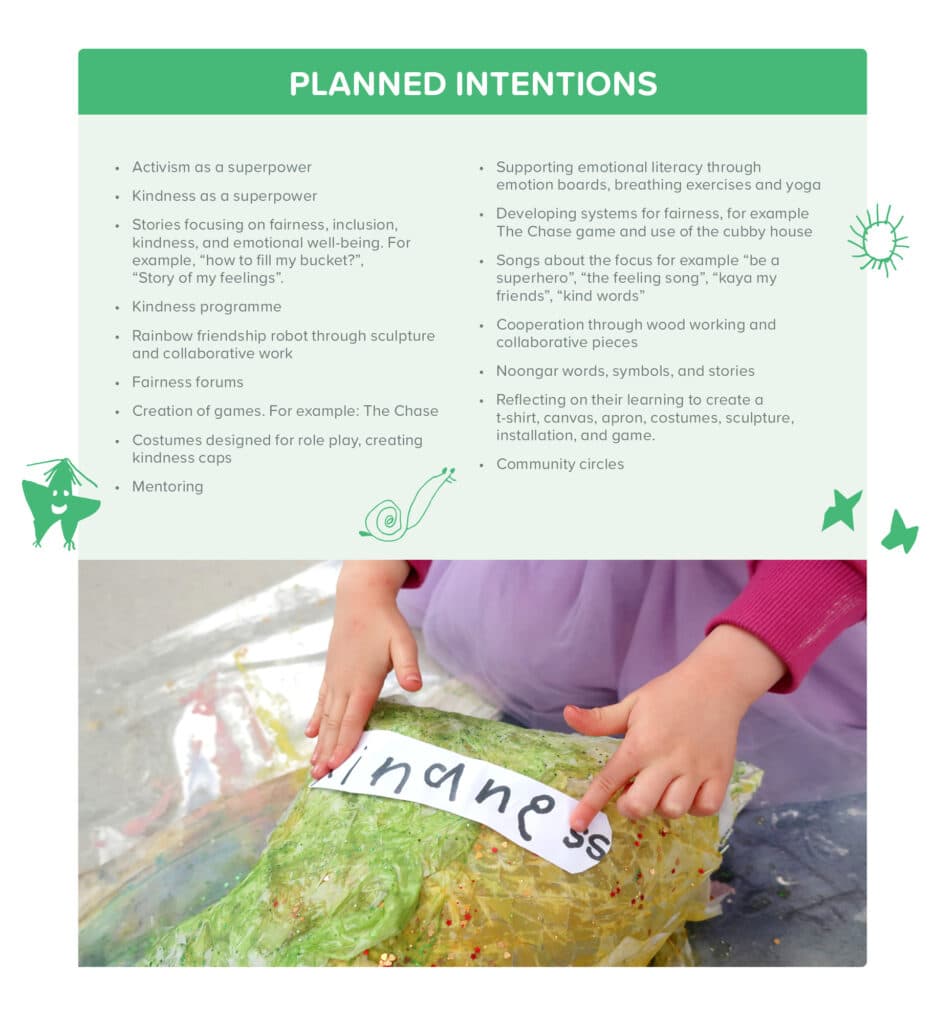

The educators from SOEL 4-Year-Old Kindy programmes met with the Pedagogy and Training Team members every four months (zoom and face-to-face) to share the children’s engagement and responses to the experiences and provocations around this BIG idea. At our final meeting, we came together to celebrate our findings, share our challenges and identify patterns and recurrent ideas across the six centres.
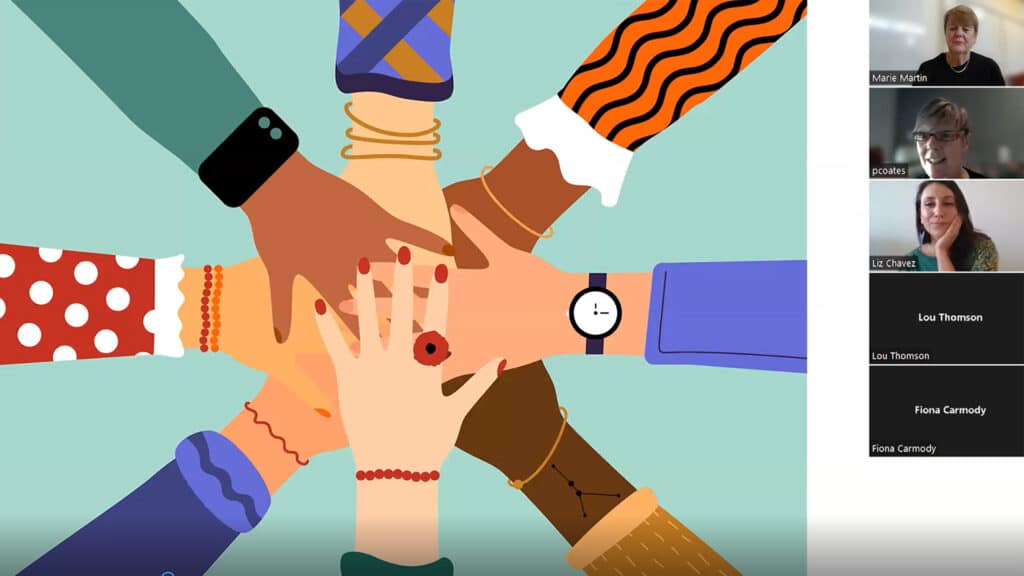

What did we learn from our 2022 research with our 4-Year-Old Kindy children?
The findings of this research were:
1. Children exploring complex ideas
We learned that children explore complex and tangled societal ideas of gender, race, identity, and good and evil by attempting to make these concepts concrete. Our children worked hard to understand, question and come to their own theories. We recognised that fairness, kindness and inclusion are abstract concepts for children. We learned that children need these concepts to be concrete and tangible.
2. Courage
As educators, we had to be courageous and lean into the work of untangling the concept of anti-bias and anti-bias goals.
3. Advocacy
We learnt that the children in this research have the desire to advocate for others. We noticed how our children have a longing and desire to understand someone else’s perspective. Our role as educators is to harness these desires.
4. Making the abstract, concrete
We discovered the persistence of our children to continue to lean into and untangle the complexities of our society. Therefore, we intentionally planned experiences for children to make the abstract concrete. Wearable objects were a tangible way for our children to embody different perspectives and life experiences. We learned that our children need and value sheltered spaces away from the hustle and bustle of the day to explore the complex ideas of inclusion and exclusion as well as their social identities.
5. The power of language
We acknowledge that our children need to voice their ideas, opinions, and theories so these can be heard and expanded upon by us in our interactions and our intentional work. We learned that our children need and appreciate specific concrete language to support them in untangling and solving problems. We identified that language has the power to include and the power to advocate for your needs and rights. Language gives you confidence.
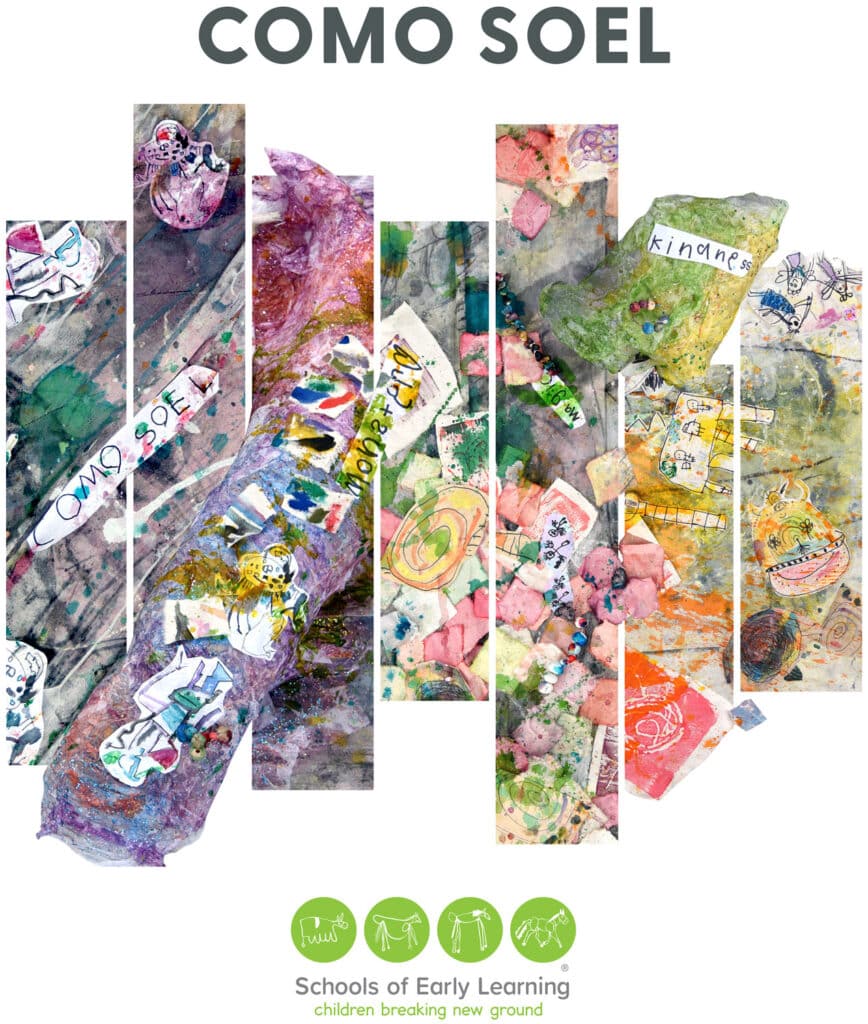

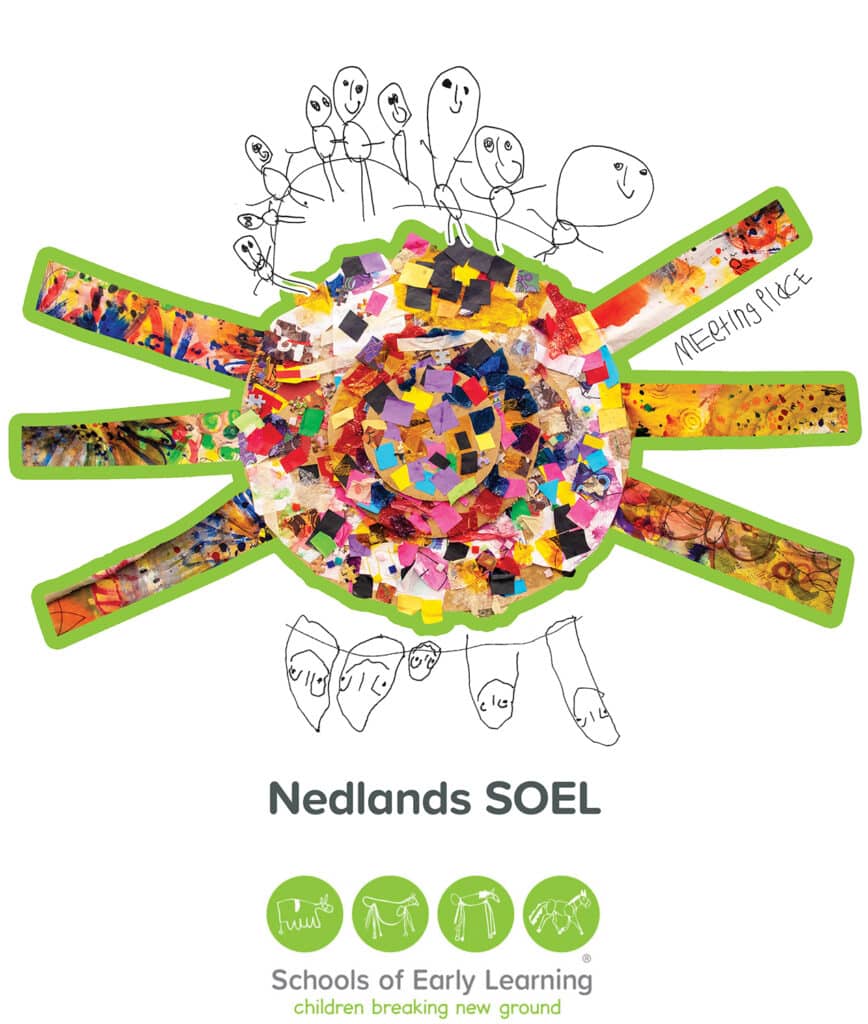

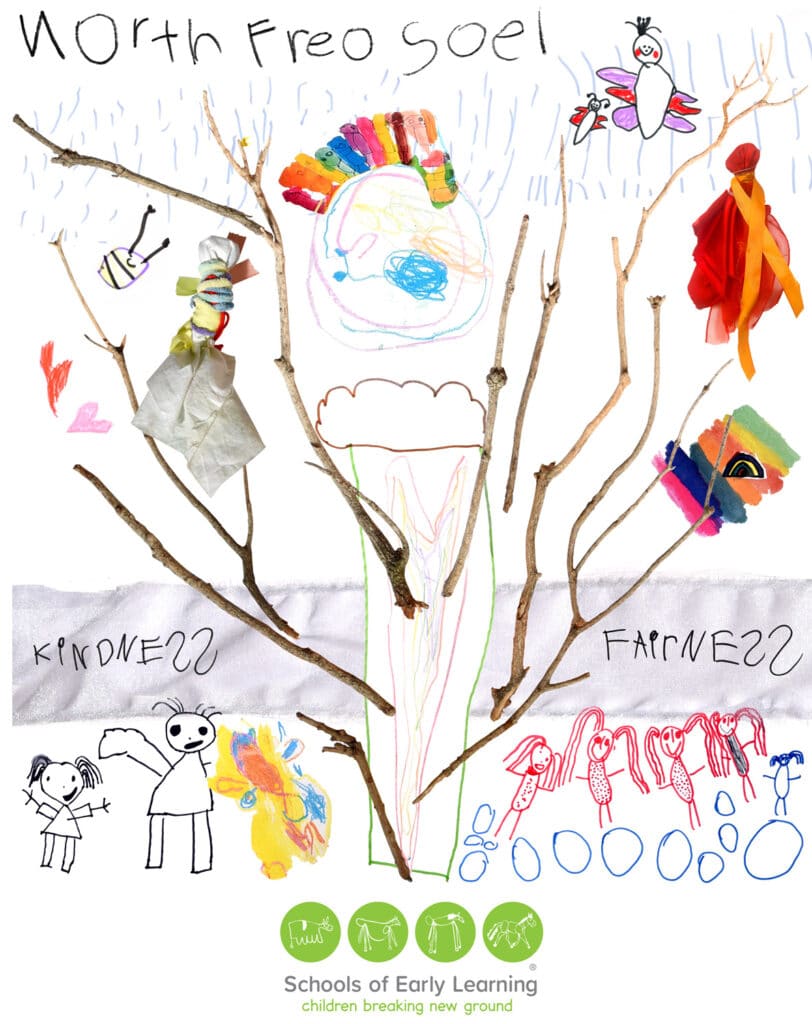

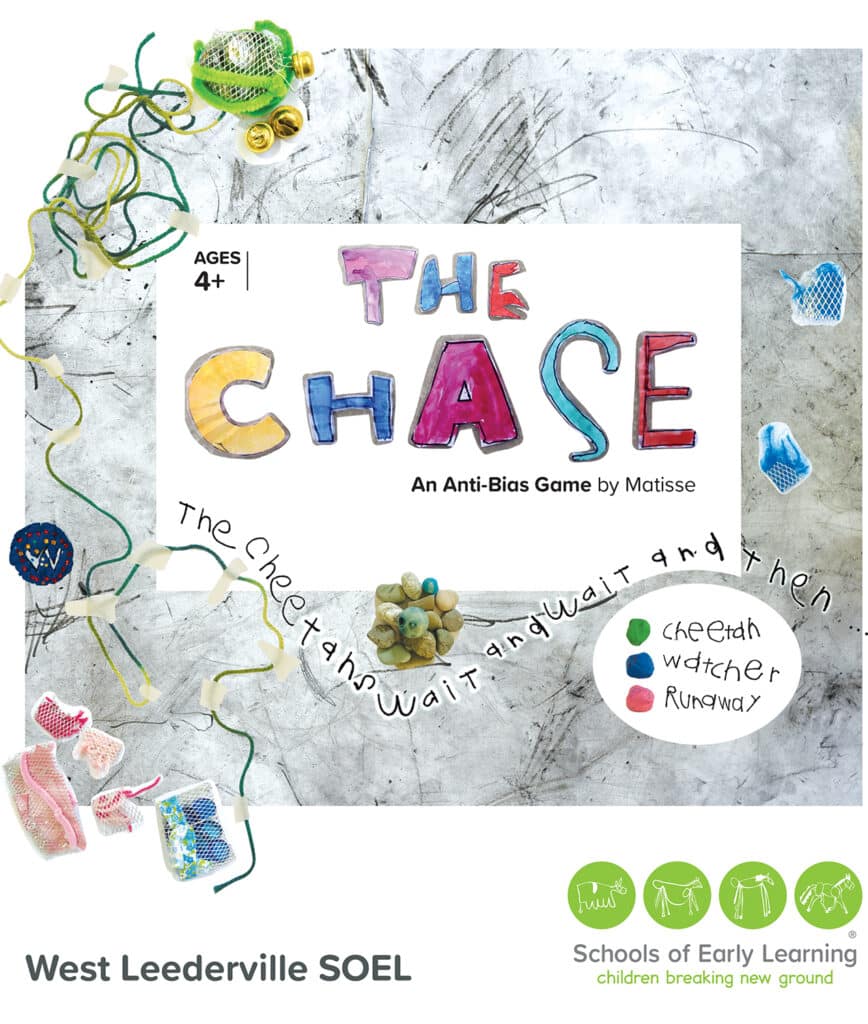

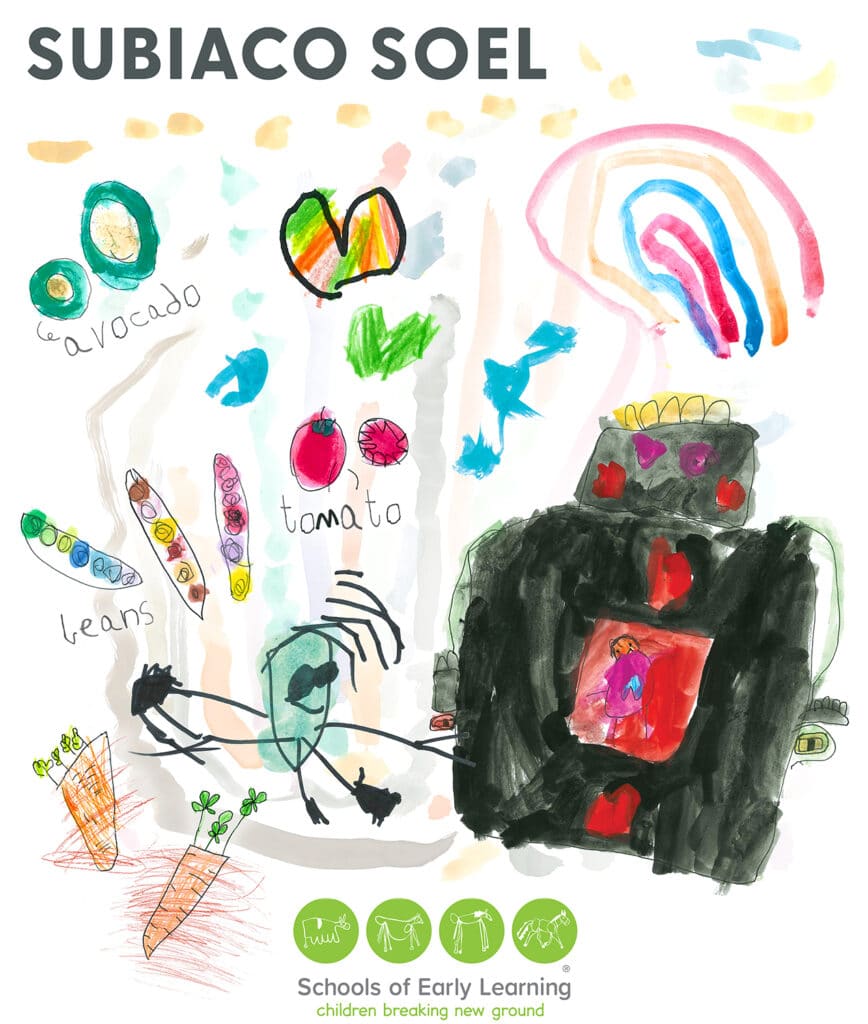

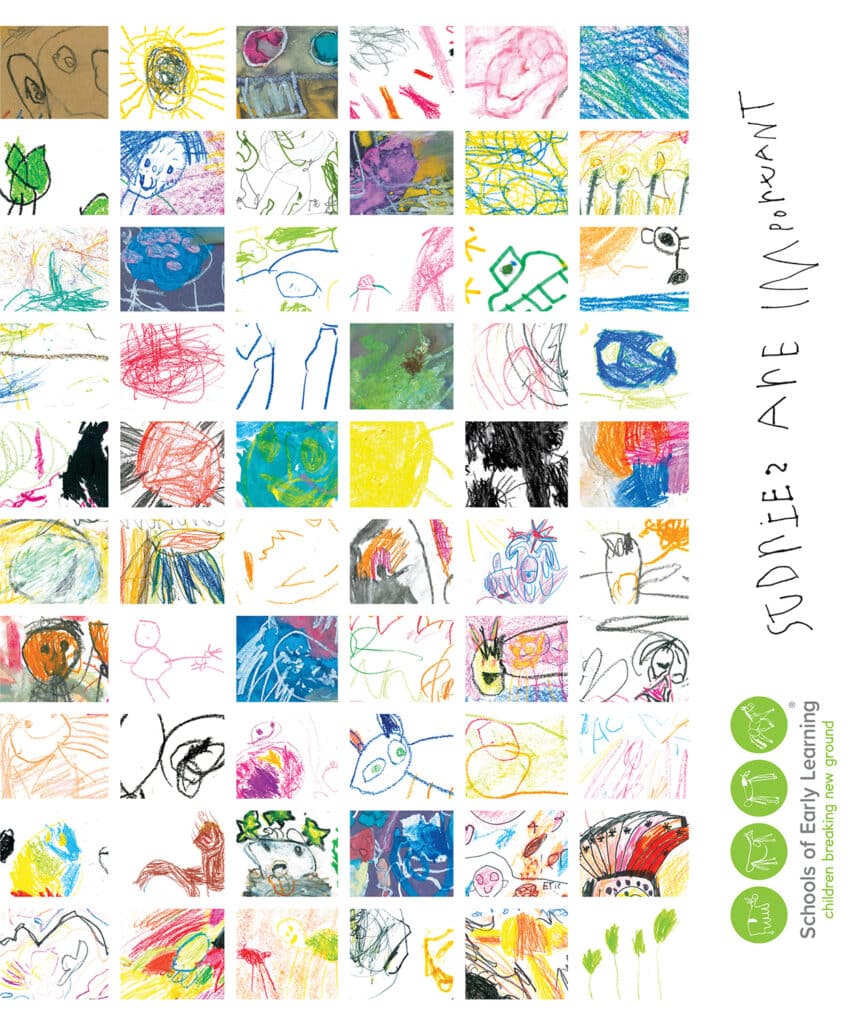

In our first year of wearing Anti-bias lenses in research, we have grounded ourselves in self-awareness and in a belief that we can learn new things; that is, foster a growth mindset to foster confident and knowledgeable personal and social identities for our children, families and ourselves. We have leaned into ourselves to find what is true for us and, in doing so, have strengthened our resilience muscle. We have become more resilient because of this work and know that we will enter 2023 with the knowledge that when we encounter challenges, we can dig deep with
Our educators dug deep into their own values and beliefs around the goals of the Anti-bias approach and what this approach meant for their everyday practices with children. The educators reflected together in their teams about what they were learning alongside the children. Children too, can be teachers and braver leaders, offering questions that provoke thoughtful inquiry, searching and learning.
After further reflection on the findings, the educators are keen to expand the concept of social justice for their 2023 research.
We want to thank the children, families and educators in our 4-Year-Old Kindy Programmes – Wolgol, Matisse, Kanimbla, Numbats, Clontarf and Preston – and educators in the Studio at each Centre for your engagement and dedication to researching alongside the children.
